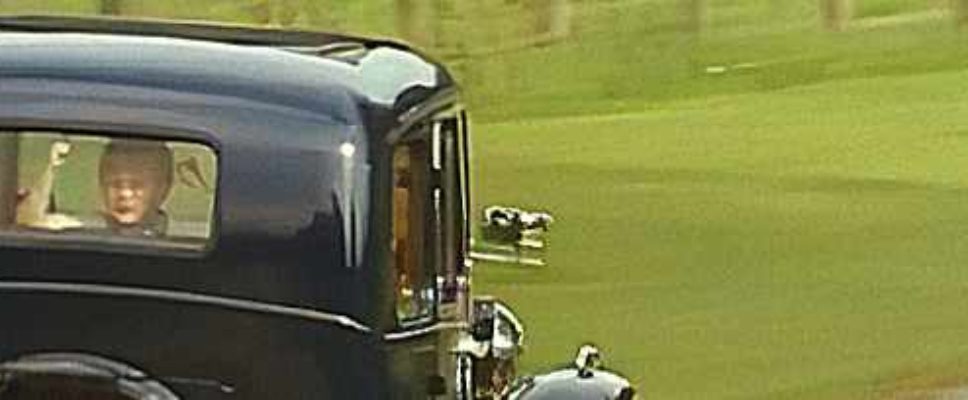Teresa Reviews “The Adventure of Johnnie Waverley” (1989)
Fidelity to text: 3 ransom notes (no murder takes place).
![]() It’s close. The major change is having Mr. Waverly hire Poirot before the kidnapping rather than afterwards. It makes sense because films demand immediate action and he’s a worried father who wants to forestall a terrible crime to his only son and heir.
It’s close. The major change is having Mr. Waverly hire Poirot before the kidnapping rather than afterwards. It makes sense because films demand immediate action and he’s a worried father who wants to forestall a terrible crime to his only son and heir.
Quality of movie on its own: 3 ransom notes.
![]() It looks great, it’s well-acted, it’s got some great scenes, but it was also a missed opportunity. So much more could have been done with the tension between Mr. and Mrs. Waverly. She controls the purse strings and he resents it.
It looks great, it’s well-acted, it’s got some great scenes, but it was also a missed opportunity. So much more could have been done with the tension between Mr. and Mrs. Waverly. She controls the purse strings and he resents it.


In other words, Mrs. Waverly counted out (cheap) potatoes! To guests!
Mrs. Waverly’s scrimping is even more apparent at breakfast.

Knowing that reason would have been fascinating. This was the scriptwriter’s chance to shine and fill out what is a very skimpy story. Did Mrs. Waverly resent being married off for her money? She’s the reason the mansion is short-staffed according to the butler. According to Hughes, the builder, Mrs. Waverly is the reason the restorations on Waverly Hall were stopped. Did she resent paying for expensive redecorating? Or did she so dislike spending money, she was okay with letting the roof leak and water and mildew destroy the ancestral home of her husband? And what does that mean about her feelings for him?
We aren’t told. What makes this weird and obviously wrong is that the Waverlys act like a happy couple. There’s not so much as a cross glance between them, despite how poorly they feed invited guests and how the front of the Hall looks like a construction zone. There must be conflict between the two of them — any marriage counselor will tell you how money issues will tear a couple apart like nothing else — and yet we get nothing.
It didn’t feel right. It felt even less right when Poirot reveals who the kidnapper had to be, since every clue pointed towards the only person capable of this inside job. £70,000 is a pretty darn good motivation. The sudden acquisition of £70,000 being spent on renovations would be deeply suspicious. If Mr. Waverly had to stop renovations because his dear wife wouldn’t pay for them and she pays close attention to spending, then wouldn’t she notice?
Believe me, I’d notice if my dear husband suddenly began contacting builders to reside the house with cement-fiberboard siding, install new windows, completely gut the kitchen and dining room, and add a fireplace when I know there’s no money to do so.
The only part of the Waverly relationship that rang true was they both loved their son.
There was plenty to like about this episode. Miss Lemon and her miracle filing system was amusing as well as so useful. She demonstrated again why she’s the perfect secretary for a man as obsessed with order as Poirot.

We got to see more of Captain Hastings and his passion for motorcars. We got to see Poirot interacting with the British countryside in all its messy, weedy, disorganized glory. We got to watch them indulge in a singalong while driving down country lanes! Hugh Fraser plays Captain Hastings and he does a good job portraying an amiable idiot.
In the end, though, the problem with this episode is the central mystery and it’s not Johnnie Waverly’s little adventure. It’s the relationship between his parents. That part of the story needed far more detail than what we got. It was opaque, opaque enough that Hercule Poirot with his little gray cells could not penetrate the veil of mystery concealing the relationship between Mr. and Mrs. Waverly.

